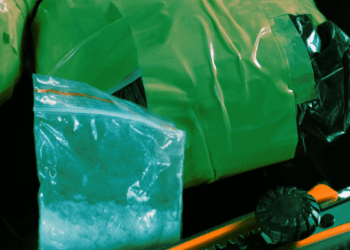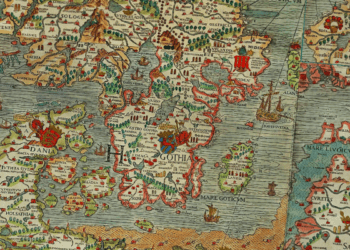By Philip Cross and Jack Mintz
May 1, 2024
Executive Summary
Despite the importance of natural resources to our economy, Canadians often downplay or ignore this sector’s historical and continuing contribution. Prime Minister Justin Trudeau, in his 2016 inaugural address to the World Economic Forum at Davos, articulated the growing discomfort with our resource riches: “My predecessor wanted you to know Canada for its resources. I want you to know Canadians for our resourcefulness.” The federal government excluded the resource industries when recently touting Canada’s attractiveness to foreign investors. Even some prominent media play up a false argument that Canada’s bountiful resources make Canadians lazy or squeeze out growth in other industries.
This paper examines the sizeable contribution of natural resources to Canada’s economy. The resource sector includes primary production of agriculture, fishing, forestry, mining, and mineral fuels, and many manufacturing industries like food, wood, petroleum, and mining products. The paper begins by examining the effect of natural resources on Canada’s GDP, employment, investment, and international trade, and then proceeds by outlining the importance of natural resource industries to Canadians living in remote areas (notably Indigenous peoples), how resources foster the cultural values that encourage entrepreneurship and innovation, and ultimately how they allow all Canadians to survive our unforgiving geography and climate.
Key conclusions include the following:
- Natural resources contribute 14.9 percent of Canada’s GDP, with the energy industry alone accounting for half of resource output. Resources account for over 45 percent of manufacturing output.
- Nearly one in ten jobs are related to resources, employing 1.3 million Canadians.
- Canada’s comparative advantage in trade depends heavily on its resource sector, which accounted for 58 percent of all merchandise exports in 2023. Natural resources are the only sector in which Canada has a trade surplus, and resource exports by themselves total more than all of Canada’s merchandise imports.
- Despite a prolonged investment slump in an increasingly hostile regulatory environment, natural resource industries still account for nearly half of all business investment in Canada. At over 30 percent, effective tax rates on new oil and gas investment are twice as high as for other industries. The time required for initial regulatory approvals is double the legislated requirement under the Impact Assessment Act. Regulatory delays add another fifth in tax costs on investment.
The dominant role that natural resource industries continue to play in investment and exports reflects the vital importance of this sector to Canada’s ability to compete in international markets. In the years before the pandemic, the Bank of Canada stressed the importance of shifting growth from household and government spending, fuelled mainly by debt, to investment and exports. However, except for residential investment driven by population growth, this shift never occurred, largely because of the reluctance of firms to commit to the investments needed to improve our export competitiveness and capacity. With interest rates normalizing after governments and households took on even more debt because of the pandemic, the importance of investment and exports to long-term growth has only increased.
Discounting Canada’s natural resource sector continues a tradition among some economists and policy-makers of denigrating its contribution to our economic development. This disparagement dates back to the Staples Thesis and the recent critique that resource industries have hampered the development of other knowledge-based industries.
People downplay the importance of natural resources to Canada for several reasons. Critics have long cultivated a negative image of the resource sector by using such disapproving terms as “trap,” “curse,” and “disease” in their critiques of a “staples trap,” a “resource curse” and the “Dutch disease.” Compounding this negativity is that most natural resource industries are located outside of core urban areas, making them nearly invisible to media, cultural, and academic elites. Natural resources also are shackled with the inaccurate image of being low tech and requiring little effort or ambition to win the “geographic lottery” that comes from being blessed with a resource endowment. Finally, the country’s abundant resources are believed to overtly inhibit the development of knowledge industries in Canada.
All these prejudices are patently false. The history of resource development in Canada has been driven by a steady stream of inventions and innovations; Canadians have often pushed themselves to the technological frontier with new technologies in wheat, canola, hydroelectricity, metals, and the oil sands. More broadly, natural resource industries cultivate the cultural values that support entrepreneurship and innovation in all industries because their cyclical nature requires a flexible labour force and tolerance of creative destruction; their capital-intensity necessitates high savings and long-term planning; and their dependence on foreign markets encourages a receptivity to international trade and investment flows.
The primordial importance of natural resources, especially energy, means that the transition to new energy sources must be well-managed and based on economic fundamentals to avoid economic disruption. Governments encourage the transition by using taxes and regulations to raise the cost of fossil fuels while subsidizing renewable energy. However, this transition has proceeded slowly because of its high costs and growing resistance from an electorate already struggling with the recent surge in inflation and interest rates. If the transition to new energy sources continues to be mismanaged Canadians will experience an even steeper decline in their incomes than has occurred over the past decade, further eroding our standing in an increasingly dangerous and volatile world.
The difficulty for Canada – and for almost every nation – in making the transition to new energy sources reflects the fact that energy consumption is fundamental to long-term economic development.
Read the full paper here:







